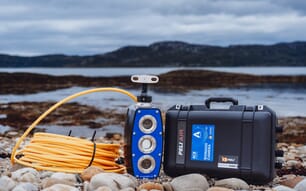This option to reduce fishmeal helps to soften the impact on farmers of rising fishmeal prices. Similar progress for yellowtail was achieved by Skretting Japan, again moderating the effects of fishmeal prices. In both instances says Skretting, reducing reliance on fishmeal contributes to greater sustainability for these aquaculture species, which is a key ambition.
The trials over a full year showed exactly the same specific growth rate and feed conversion ratios as the conventional turbot diet, reports Fernando Sanz, Commercial Director, Skretting Spain.
Because Optiturbot is less dependent on fishmeal, with its current high cost, it is proving attractive to customers. The performance of the diet demonstrates that the MicroBalance concept, developed at Skretting Aquaculture Research Centre (ARC), can be applied widely across many species. It was first introduced for salmon feeds in 2010 and since then has been extended; for example we have introduced it in diets for trout, sea bream and sea bass. Now, together with Skretting ARC, we have added turbot to the list. We are particularly pleased to have achieved this because developing optimum diets for turbot is always a challenge, historically requiring very high levels of fishmeal. Now, with Optiturbot delivering a strong performance, it is selling in large quantities. Even so, MicroBalance is a live project and we will continue trying to improve its benefits.
Less fishmeal than conventional diets
The MicroBalance concept is based on findings at Skretting ARC that fishmeal provides a number of functional micro-ingredients and it is these that set the minimum limits for fishmeal content in the diets. By sourcing them from alternative raw materials, less prone to price volatility, Skretting can formulate diets that deliver the required performance while containing far less fishmeal than conventional diets.
Success with MicroBalance in Japan
Skretting Japan achieved equivalent success with MicroBalance in lower fishmeal versions of yellowtail diets. Leo Nankervis, a researcher at Skretting ARC says: Skretting Japan successfully transferred the knowledge we gained with several other species to reduce fishmeal levels in yellowtail diets from over 50 per cent to around 30 per cent. In trials we have seen good performance in yellowtail with 25 per cent fishmeal, so we know that 30 per cent is a safe level for commercial diets.
The lower fishmeal diet has delivered results equivalent to conventional diets and maintained this performance now for 12 months. This record with reduced fishmeal caused something of a stir in the relatively conservative Japanese market, sales increased and Skretting Japan gained market leadership.
Our initiative with the yellowtail diet has raised attention towards the responsible use of limited raw materials, commented Yuta Hamasaki, Product Development Manager, Skretting Japan. Other companies are starting to develop lower fishmeal diets and suddenly people are talking about sustainability. In Skretting Japan, we are proud to have stimulated this trend.
Skretting ARC researchers believe 30 per cent fishmeal is still quite high and are working to lower levels further.
The next challenge in species terms is to apply the MicroBalance concept in shrimp feeds, adds Mr Nankervis.




